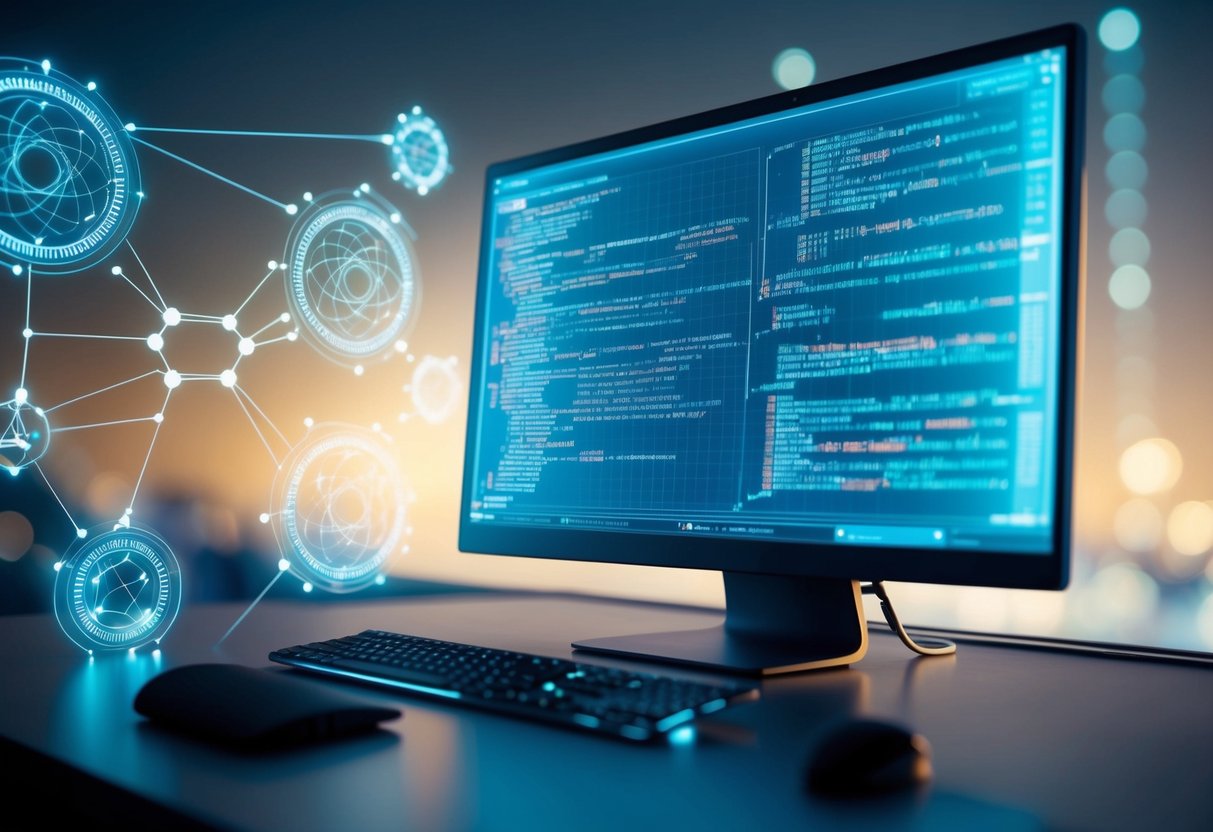
Quantum Error Correction and Mitigation
Quantum error correction and mitigation are crucial for ensuring the reliability and stability of quantum computations. Quantum decoherence and strategic error mitigation approaches are essential to advancing quantum programming languages and technologies.
Understanding Quantum Decoherence
Quantum decoherence represents a significant challenge in quantum computing. It refers to the loss of quantum coherence, where quantum systems lose their ability to exhibit quantum behavior, transitioning into classical states. Decoherence occurs due to interactions with the environment or operational imperfections, disrupting quantum states.
To tackle this, researchers focus on isolating quantum systems, employing low temperatures, and utilizing error-correcting codes. These methods aim to preserve coherence over extended periods, a critical requirement for practical quantum computing.
Strategies for Error Mitigation
Error mitigation strategies play an essential role in enhancing quantum computation resilience. Techniques such as noise reduction, quantum circuit optimization, and the application of error-correcting codes are employed to address errors during quantum computation.
Implementing error mitigation requires understanding the types of noise affecting quantum systems. Techniques like extrapolation, readout error mitigation, and dynamic decoupling are applied to improve accuracy and reduce error impact. These strategies are not error-proof, but they pave the way for more robust quantum computations.
Integration with Classical Systems
The merging of classical and quantum systems is pivotal for advancing technology. This integration involves using classical computers to manage quantum tasks and develop hybrid algorithms, enhancing computational capabilities.
Hybrid Quantum-Classical Systems
Hybrid quantum-classical systems are essential in bridging the gap between current computing technologies and future advancements. These systems combine the precision and control of classical computers with the unique capabilities of quantum computing. This allows for efficient problem-solving strategies.
An example includes variational quantum algorithms, which optimize parameters with classical computation to refine quantum processes. This approach adapts well to existing infrastructure, leveraging both classical and quantum strengths. It is essential in areas where classical methods alone fall short but pure quantum computation remains impractical.
As quantum technology matures, these hybrid systems will likely become more refined and broadly applied, playing a crucial role in accelerating innovation across various industries.
Role of Classical Computing in a Quantum World
Despite the advancements in quantum computing, classical computing still holds significant importance. Classical systems handle various tasks beyond the capabilities of current quantum machines. Their role in quantum error correction and algorithmic verification is invaluable, ensuring reliable quantum operations.
Moreover, classical computers provide essential support in running simulations and modeling quantum systems. They act as interfaces, translating quantum outputs into actionable insights. This involvement is particularly crucial when operating noisy intermediate-scale quantum (NISQ) devices.
The reliance on classical computing not only maintains continuity in technological development but also aids in gradually transitioning toward more advanced quantum systems. This partnership between classical and quantum paradigms ensures sustained computational progress and empowers the realization of complex problem-solving frameworks.